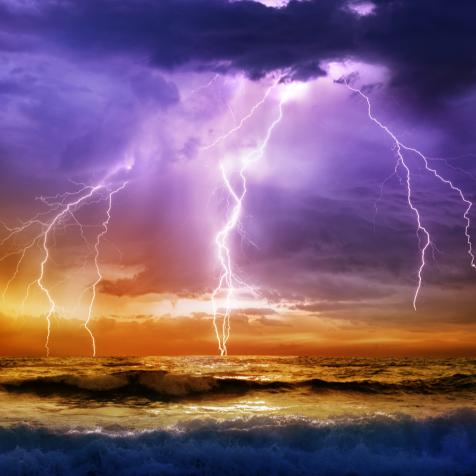
Getty Images
Why Is Chickenpox So Much Worse for Adults Than for Kids?
This childhood disease is harder to fight the older you get.
Everybody knows that you need to get the chickenpox when you're young. Once you've had it, you can never catch it again, and it's way worse for adults than it is for little children — it can even be deadly, and your risks only increase the older you get. But wait ... pretty much every other disease affects small children worse than healthy adults. So what makes chickenpox so special?

Getty Images/KATERYNA KON/SCIENCE PHOTO LIBRARY
Silly Grown-Up. Pox Are for Kids!
What makes chickenpox so much worse for adults than for kids? Here's the most accurate, least satisfying answer: Adults experience complications when they get the illness more than children do. That means that if an adult who never contracted chickenpox starts breaking out in the little itchy blisters, they're more likely to suffer side-effects such as pneumonia (an infection in the lungs), hepatitis (an infection in the liver), and encephalitis (an infection in the brain). In men, these risks are even higher. Obviously, all of those side-effects are dangerous in their own way, but why would adults be more likely to get them than little kids?
The fact is, the jury is still out on that. Some experts speculate that the answer lies in the differences between adult and child immune systems. Kids' immune systems are dominated by phagocytes, which are big cells that "eat" any foreign material, while adult immune systems employ more antibodies, which attack microbial invaders like X-Wings attack TIE Fighters. It might be that the hungry, hungry hippo style of immune system is just more effective against certain viruses.
But clinical professor Dr. John Swartzburg has a different suggestion. Perhaps viruses and their hosts have a pseudo-symbiotic relationship that can be upset if a person gets the disease at the "wrong" time. For example, polio isn't necessarily the child-killer we think it is — as long as you get it young enough. After all, it doesn't do the virus any good if its host dies. But when clean drinking water standards rose, it caused rates of polio in infants to drop dramatically, and when those same kids contracted the disease later, its effects were much worse. Dr. Swartzburg is also quick to point out, however, that his theory is only speculation as well.
How Not to Get It, and What to Do if You Do
All that is fine but it won't do you much good if you're an adult who never got the disease and your kid just came home covered in spots. Here's the good news. Nobody ever has to get chickenpox. Despite the widely held belief that everyone should catch it when they're young so they don't when they grow up, we have an effective chickenpox vaccine, and we have for about 30 years. Just get the shot, and get it for your kids, too. They may have a lower risk of complications, but "lower risk" is infinitely higher than "no risk."
But maybe you got this advice too late. Well, the only thing to do is to let it pass as quickly and as painlessly as possible. Take it easy. Drink lots of water. Antiviral medication such as acyclovir may weaken the infection, and other medications, including ibuprofen and Benadryl, can help with the fever and the itching. Finally, there's nothing like a classic calamine lotion rub or an oatmeal bath to really soothe those angry spots.
This article first appeared on Curiosity.com.


















